Russian Airstrikes in Syria: July 14 - August 9, 2016
Aug 12, 2016 - Genevieve Casagrande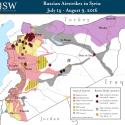

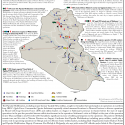
The Popular Mobilization, including major Iranian-backed Shi’a militias, sought to formalize their participation in operations in northern Iraq.

This graphic marks the latest installment of our Syria SITREP Map made possible through a partnership between the Institute for the Study of War and Syria Direct. The graphic depicts significant recent developments in the Syrian Civil War. The control of terrain represented on the graphic is accurate as of July 22, 2016.
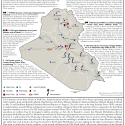
U.S. Chairman of the Joint Chiefs of Staff Gen. Joseph Dunford arrived in Iraq on July 30 to discuss upcoming operations in Mosul with Coalition, Iraqi, and Kurdish officials.

Pro-regime forces completed the encirclement of Aleppo City on July 28, isolating the main stronghold of mainstream opposition groups in Northern Syria. Meanwhile, Jabhat al-Nusra head Abu Muhammad al-Jolani issued a video statement announcing the formation of a new group called ‘Jabhat Fatah a-Sham’ with “no affiliation to any external entity” in a symbolic break with Al-Qaeda. The rebranding represents a calculated move to facilitate the unification of armed opposition groups in a “grand merger” that continues to pursue the long-term strategic vision of Al-Qaeda to establish an Islamic Emirate in Syria.
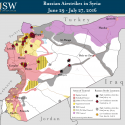
Russia enabled pro-regime forces to complete the physical encirclement of Aleppo City on July 28, isolating the primary nexus of the non-jihadist opposition in Northern Syria. These gains threaten the long-term survival of mainstream opposition groups that could serve as potential partners against ISIS and Syrian Al-Qaeda affiliate Jabhat al-Nusra.
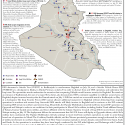
Prime Minister Haidar al-Abadi accepted the resignation of seven ministers on July 19 and July 20, suggesting that PM Abadi will seek to restart the Cabinet reshuffle process.

The failed coup attempt in Turkey on July 15 will generate significant upheaval in the Syrian Civil War. Turkish President Recep Erdogan will likely direct his attention inward over the coming months in order to consolidate his power. This distraction will likely disrupt the flow of logistical support provided to opposition groups by Turkey, enabling short-term military gains by a number of actors including Syrian President Bashar al-Assad and the Islamic State of Iraq and al-Sham (ISIS).

The Iraqi Security Forces (ISF) seeks to open and maintain operations in western Anbar and Ninewa Provinces in order to eliminate remaining ISIS strongholds in Iraq. Sadrist Trend leader Muqtada al-Sadr led thousands of protesters in Tahrir Square on July 15, giving usual demands for technocratic and anti-corruption reforms.
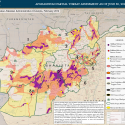
President Obama announced on July 6 that the U.S. will maintain 8,400 troops in Afghanistan through the end of January 2017 instead of the planned drawdown to 5,500. He then stated that the only way to achieve a full drawdown of forces is to reach a peaceful political settlement between Taliban militants and the Afghan government.